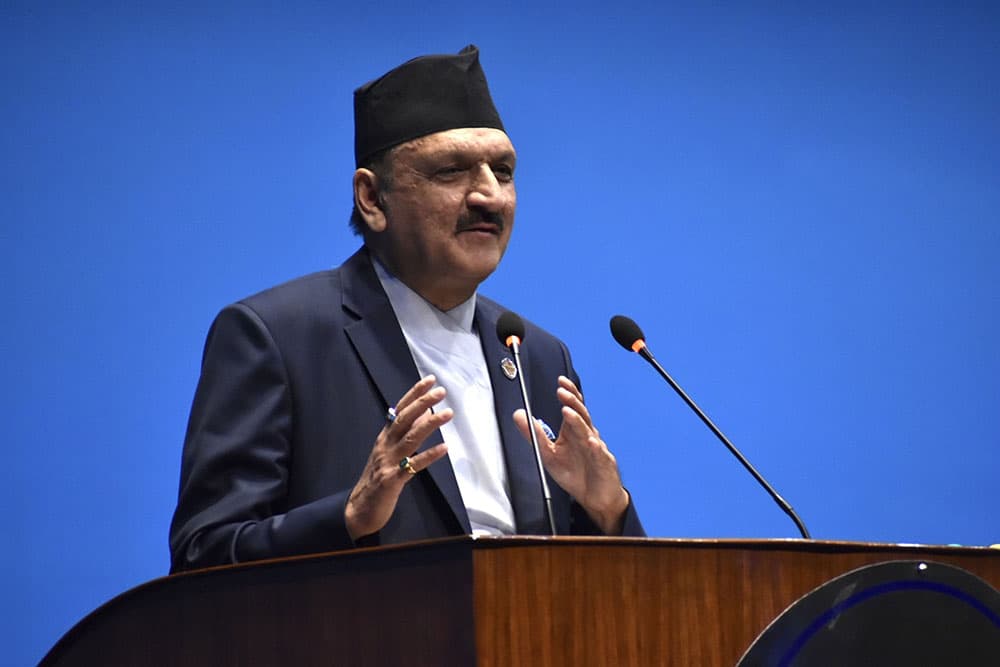
Discover the major announcements and sectoral allocations outlined in the Nepal budget 2023/24, presented by Finance Minister Prakash Sharan Mahat. With a total size of Rs 1.751 trillion, the budget aims to implement ambitious programs while addressing past unimplemented initiatives. Let’s explore the key highlights for each sector:
-
Special announcements:
- Each member of the House of Representatives will receive Rs 50 million for the constituency development program, with a total allocation of Rs 8.25 billion.
- Introduction of QR codes for payment of all types of revenues.
- Busy government offices will operate in two shifts.
- No specific raise in employees’ salary, but the recommendations of the Salary Commission will be implemented gradually.
-
Measures for expense control:
- 20 non-operational government agencies will be scrapped.
- Public utilities will be operated in a company model, and strategic partners will be invited for problematic public utilities.
- No new buildings and vehicles will be acquired unless necessary.
- No additional motivational allowances.
- No foreign trips unless necessary.
- No creation of additional positions.
-
Innovation, invention, and investment:
- Rs 7 billion allocated for driving towards an independent economy.
- Rs 1 billion for innovation and invention research.
- At least 1% of the annual budget will be spent on innovation, invention, and research.
- Rs 1.25 billion for startups.
- Promotion of “Make in Nepal” and “Made in Nepal” initiatives.
-
Sectoral allocations for key sectors:
- Agriculture: Rs 58.98 billion allocated, including grants based on production, support for modernization projects, promotion of native indigenous crops, and technical support expansion.
- Forest and environment: Rs 15.56 billion allocated, including the President Chure Conservation Project and the promotion of paper and cloth bags instead of plastic bags.
- Land management: Rs 7.24 billion allocated, including providing land acquisition certificates to landless people and allowing halted land plotting.
- Industry, commerce, and supplies: Rs 9.46 billion allocated, including the expansion of industrial districts, development of special economic zones and industrial villages, and support for micro-entrepreneurship projects.
- Labour, employment, and social security: Rs 8.08 billion allocated, including the Prime Minister Employment Programme and promotion of contribution-based social security.
- Culture, tourism, and civil aviation: Rs 11.96 billion allocated, including the celebration of Visit Nepal Decade, promotion of domestic tourism, construction of the Great Himalayan Trail, and reconstruction of cultural monuments.
- Education, science, and technology: Rs 197.29 billion allocated, including scholarships, school day meal programs, free sanitary pads, and establishment of medical colleges.
- Health and population: Rs 83.99 billion allocated, including control of communicable diseases, expansion of hospitals, free medicines, and improved services.
- Water supply: Rs 28.16 billion allocated, including the expansion of the Melamchi Water Supply Project and wastewater treatment plants in Kathmandu.
- Transport infrastructure: Rs 131 billion allocated, including the widening and upgrading of highways, construction of the Kathmandu-Terai fast track, and development of different road projects.
- Urban development: Rs 2.15 billion allocated, including infrastructure development for local governments and housing for homeless people.
- Energy, water resources, and irrigation: Rs 87.45 billion allocated, including irrigation projects, increasing electricity accessibility, adding to the national transmission line, and promoting alternative energy.
- Communications and information technology: Rs 7.71 billion allocated, including the operation of a national cyber security center and restructuring of the postal service.
- Climate change and disaster reduction and management: Special climate projects and relocation of disaster-hit and vulnerable populations.
- Security and defense: Upgrading digital forensic lab, relocating central jail, and completing police adjustment.
These are some of the major announcements and allocations in the Nepal budget for the fiscal year 2080/81.
Related:



